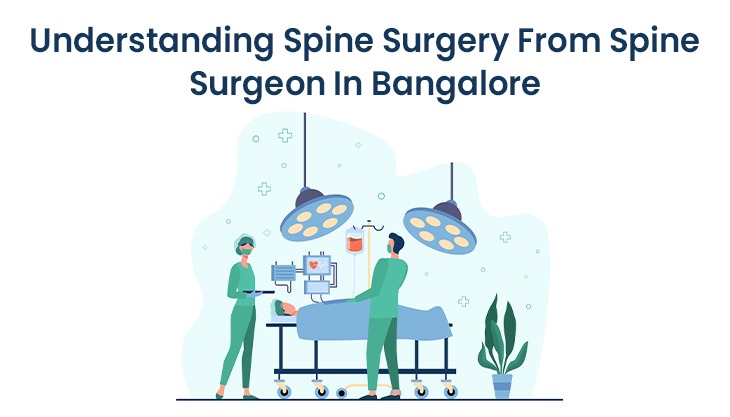And if you wanted to find a way to engage and exercise these cells; you would have to agree that becoming a neurosurgeon could serve the purpose. Humour aside, aspiring or existing medical professionals who live to challenge themselves and are very much in love with operation rooms, may think of pursuing Neurosurgery as a Career. Some may also have an emotional reason for opting for neurosurgery – like having mentored under an inspiring Neurosurgeon or someone close to your heart having suffered from relating alignment, etc. No matter what the reason for wanting to become a neurosurgeon, it cannot be denied that Neurosurgery as a career is a rather challenging option. Today, we are going to get into the details about what it means to be a neurosurgeon, and how you can become one. So, let's get into the details.
Who is a Neurosurgeon?
Neurosurgeons are Neurological Doctors or physicians who perform the complete diagnosis and treatment of illness, ailments, and disorders of the central and peripheral nervous system – including the brain, the spinal cord, and the nerves. Thus, they conduct surgeries relating to brain and spine injuries, degenerative disorders of spine and brain, etc. that correct any neurological problems of the patients.
What are the various skills and requirements of a Neurosurgeon?
-
More than anything, a Neurosurgeon is needed to be able to deal with long working hours. This is because neuro surgeries tend to take a few hours to operate, and neurosurgeons will be expected to perform such long surgeries with all concentration (without andy food and water). They even need to be indifferent whether it's day or night and try their best and beyond to cure their patients.
-
Along with good stamina and steady hands for operating they also need to be mentally strong to deal with any kind of adversities and stress. They need to be active as well as decisive.
-
Neurosurgeries deal with nerves, spine, brain tissues – everything that affects the movement, speech, thinking, and feeling ability of the patients, and thus, the techniques involved are quite microscopic.
-
They should be able to conduct complicated neurosurgeries and at the same time to be able to explain it in a very uncomplicated manner to the patients.
-
They should have feelings of compassion for patients as they are most probably very sicklier and facing much pain.
-
Neurosurgeons should be able to build an unmatched bond with their patients so they have trust that their neurosurgeons will successfully operate on their most important organs of the body.
-
Also, they need to shoulder a great personal responsibility for the care of the patient and the outcome of the treatment.
-
According to the need of the treatment, they’ll also be required to coordinate with other neuro-physicians, psychiatrists, physiotherapists, etc., and thus need to be on good terms with them too.
-
They should be updated with all the latest innovations and techniques within the neurosurgery field.
-
They should not be satisfied with mere good performance, but rather should always be in the pursuit of excellence. The surgeries they are to perform are complicated and thus, they need to continuously push themselves to be par excellence.
Hope this makes the exact picture of – what entails being a neurosurgeon – clear to you. Now .
Advantages and Disadvantages associated with Neurosurgery as a Career:
Advantages:
-
The neurosurgery field gives Neurosurgeons the opportunities to operate the most probably sickest people and alleviate their ailments.
-
Neurosurgery involves operating on the spine, brain, and nerves, i.e. those organs that are very important for movements, feelings, thinking capabilities, speech, understanding, etc. within human beings. The smallest mistake can cause bigger problems, all this makes Neurosurgery a challenging career.
-
With such a high rate of challenges, undoubtedly this job profile gives the utmost job satisfaction of having achieved success in the operations.
-
An operation is not solo work, it requires teamwork, and as a neurosurgeon, you will be able to develop a beautiful team spirit & work together as a team along with the scrub nurse, the neurosurgery residents, the anesthesiologist, the resident neurosurgeon, etc.
-
Also, within neurosurgery, the more you explore, the more you find, and thus there are innumerable research opportunities that allow for personal growth as well as patient welfare too.
-
With continuous and endless research, there is always a scope for improvement. And thus, the neurosurgery field lets you always strive for the best – you cannot be satisfied with anything mediocre.
-
Neurosurgery is a comparatively smaller field, and hence neurosurgeons are like a close-knit family. Once you become a part of this family, you’ll always find the necessary help and support within. It is one for all and all for one.
Disadvantages:
-
The first and foremost is the long career path. It takes almost 14 years to become a Neurosurgeon, and that is a long time to establish yourself.
-
The complete training path to neurosurgery is long and exacting.
-
Neurosurgeons are required to work for long hours with a rather inflexible schedule. It becomes tough to maintain a work-life balance.
-
Along the line, you’ll be expected to make many personal sacrifices, you’ll need to have a family that completely supports you throughout, or else it will be a tough path ahead.
-
Most of your patients will be incredibly sick. Being continuously surrounded by people with so much sickness and pain can be discomforting. Also, treating them, creating a bond with them and their family can affect you emotionally.
-
Similarly, if you are into a specialty such as pediatric neurosurgery, performing complicated surgeries on very small children will require being very much emotionally strong and able.
Now that we have delved into who exactly is a neurosurgeon, what are the skills required of a neurosurgeon, why you would want to be one, what are its advantages & disadvantages, let’s see what career path you need to follow to become a Neurosurgeon.
How to become a neurosurgeon? The Career Path:
To become a Neurosurgeon in India, you’ll have to follow the following career path –
-
Complete your Secondary education i.e. Std X, followed by completion of Higher Secondary education i.e. Std XII in the Science stream. While Physics and Chemistry are compulsory subjects, make sure to take Biology that is an optional subject.
-
Appear and pass the Common Entrance Test and pursue an MBBS degree. The total duration of MBBS is 4 and half years, post which you’ll have to complete a 1-year compulsory internship amounting to a total of 5.5 years for completion of your degree.
-
Post MBBS, you need to complete your Masters i.e. MS in general neurosurgery in 2 years, followed by an M.Ch. that takes about 5 years more to complete amounting to a total of 7 years of Masters.
-
Do note that there are very few institutions that provide a joined 6 years of Master's course MS-MCh. You can complete this after your MBBS and internship. Of course, due to the very less number of total seats available for this joint master's course in India, getting admission here can prove challenging.
-
During your residency of MS, MCh, you can select a subspeciality you wish to focus on and work towards it. The specialties in Neurosurgery include spine surgery, pediatric neurosurgery, cerebrovascular surgery, etc. Don’t rush, rather take your own time before committing to one specialty.
-
This last step is simply a tip and not exactly a compulsory factor towards you becoming a Neurosurgeon. While you are studying your MS, MCh, and you are completing your residency, always shadow a Neurosurgeon. You can directly approach them and request them for mentorship so that you can assist them in their surgeries, and you get more hands-on knowledge and practical experience.
-
After you complete your Neurosurgery education, you can reach out to your medical college’s neurosurgical residency program’s head/director/chairman. They can help you with the application for neurosurgeon positions, or finding mentorship. If you have a neurosurgeon peer or if any of your teaching faculty are performing neurosurgeons, you can reach out to them. And as we suggested earlier, if you have been mentoring under someone, they can help you with a letter of recommendation.
From this above-mentioned path you can understand that if you are considering Neurosurgery as a career path, there is no going back. More than a decade worth of studying, interning, and residency, does not give you much option to change career later on. So, you need to be sure of your choice when you decide to walk this path.
As the last step within the career path suggests, it is important to find a Neurosurgical Mentor. So, how do you go about it? Let us explain in detail.
How do you select, approach, and communicate with a Neurosurgical mentor?
This is an important step towards your Neurosurgical career. As we said, having a Neurosurgical mentor will help you very much, also, they can help you fit into the neurosurgical field. Thus, you need to find the right mentor at the right time with the right approach. Below are our special tips to help you through the process.
-
Begin your search for a Neurosurgical mentor at the earliest. You can even begin at the first year of your medical college itself. That'll help you shape your career trajectory, and get the proper and thorough guidance while you are completing your neurosurgery study itself.
-
Also, if you become a mentee from your 1st year, your mentor too will get more opportunities to know you and understand your capabilities. Thus you’ll be getting guidance and also building a good relationship with them. All this will reflect in the letter of recommendation that your mentor will give you at the end of your course.
-
So, which mentor should you select? How do you select them? The answer is simple, reach out to senior students who are at the end of their neurosurgery education or are applying at hospitals. They can guide you about which faculty members you should approach for mentoring.
-
Now that you are sure which mentor you’ll be approaching for mentorship, you need to tailor an approach for that mentor. Do note that mentors are busy, so keep your approach accordingly. You can start with an email with an introduction and explanation of your skills and interests, along with your CV. You can take the help of fellow residents who are currently working with a mentor to recommend you to your selected mentor.
-
Demonstrate how dedicated and hardworking you are. When they are giving you some work, work harder than their expectations, go above and beyond and do more work that they have assigned you, or complete it way before the deadline. Thus, you can build your reputation. Also, be regular with your updates and always update your progress to your mentors. Also, make sure that you, as a mentee, promote your mentor and appreciate them in front of other faculties and students.
These were our tips on How to become a neurosurgeon. you can follow them and become one!






Post Comments